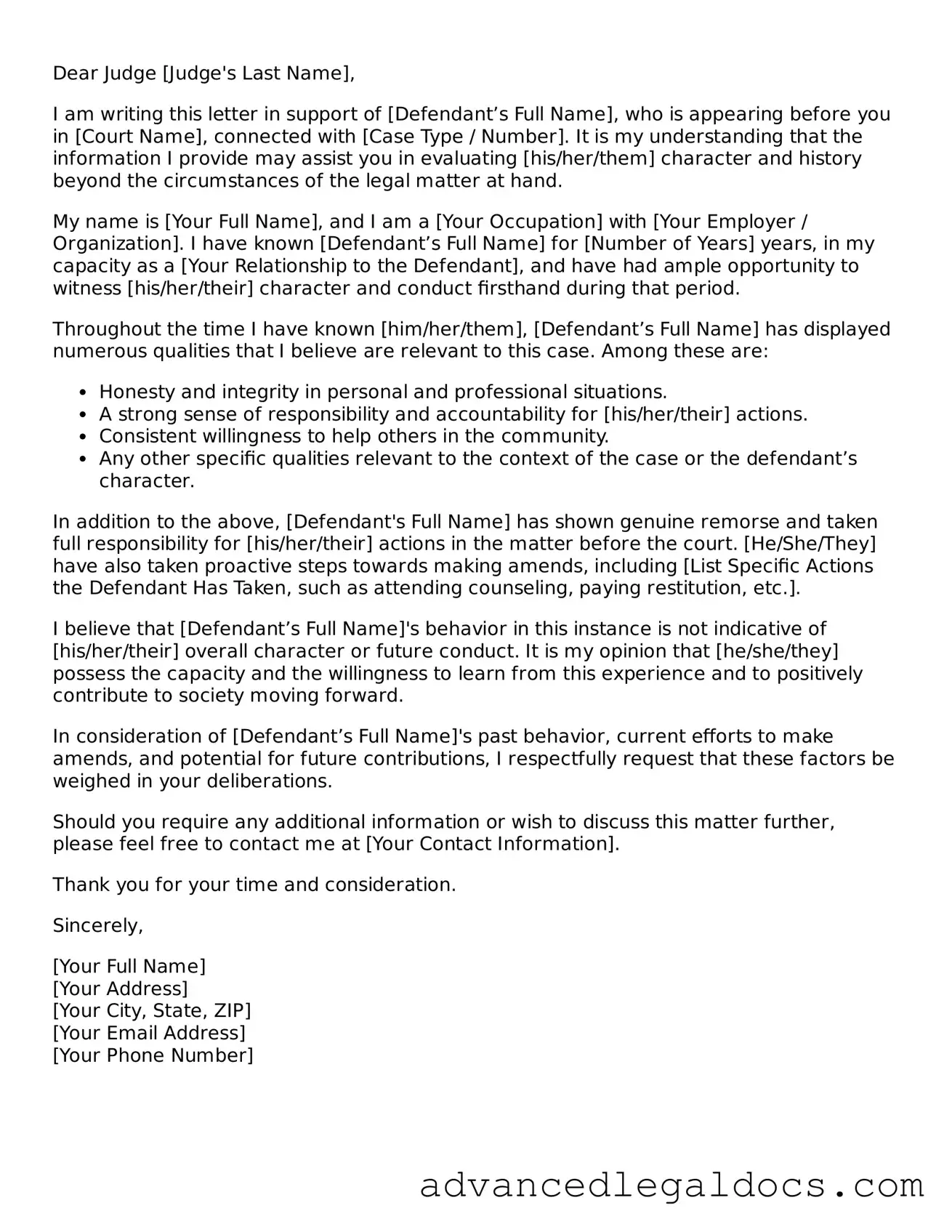Steps to Using Character Letter for Court
Writing a character letter for the court is a significant task that allows an individual to present a comprehensive picture of someone's character, especially in situations that involve legal proceedings. This letter can influence the perspectives of legal professionals considering various aspects of a case. It is important to approach this document with thoughtfulness and clear articulation, ensuring the delivered message is both credible and impactful. Following a step-by-step guide can help streamline this process, making it manageable and effective.
- Identify yourself by providing your full name, address, and contact details at the top of the letter. This information establishes your identity and how you can be reached if necessary.
- Start the letter with a formal greeting directed to the appropriate recipient. If you know the name of the judge handling the case, address them directly (e.g., "Dear Judge Smith"). If not, a general opening such as "To whom it may concern," is suitable.
- Introduce yourself in the opening paragraph, explaining your relationship to the individual in question. Mention how long you have known them and in what capacity. This context is crucial for the recipient to gauge the perspective from which you are writing.
- Detail specific instances or behaviors that demonstrate the positive aspects of the individual's character. These examples should be honest and relevant, showing the person's integrity, kindness, responsibility, or any other pertinent traits. Be as specific as possible, as detailed accounts tend to be more compelling and believable.
- Discuss any changes or growth you have witnessed in the individual's character, especially if relevant to the legal proceedings. Positive development can be a powerful indicator of a person's commitment to improvement.
- Conclude the letter by summarizing your main points and stating your belief in the individual's character. Reaffirm why you think this person deserves consideration or leniency, based on the qualities you've described.
- End the letter with a formal closing, such as "Sincerely," followed by your signature (if submitting a hard copy) and typed name.
- Proofread the letter carefully for any errors in spelling, grammar, or facts. The effectiveness of your letter can be significantly impacted by these details.
After completing these steps, your character letter for court will be ready. Remember, this letter can significantly influence the outcome for the individual in question. Handling it with care and attention to detail can make a meaningful difference.
